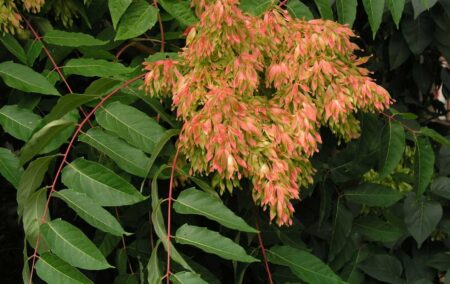More than 100 species of harmful alien vegetation – the effects of which cost the economy more than R6 billion a year – are to be given names in indigenous languages that reflect the harm they cause as a way of boosting eradication efforts.
A prime candidate is the pleasant-sounding Tree of Heaven (Ailanthus altissima), an Asian tree that can grow in dense stands and produces a herbicide that kills or stunts other plants near it.
Says Bheka Nxele, a programme manager for restoration ecology, environmental planning and climate protection in the eThekwini municipality, with a name like Tree of Heaven, ‘someone might even be tempted to plant it in their garden, not destroy it’.
He adds: ‘Negative species should have negative names.’
A report by GroundUp notes that conservationists struggle to inform local communities about harmful invasive species because they lack commonly understood names.
The report describes how, when conservationist Menzi Nxumalo spoke to people in rural KwaZulu-Natal, he struggled to communicate with them, even though they were speaking the same language. ‘We’d go to communities and try to communicate to them about the impact of invasive species, but we failed to deliver the message because of the communication failure,’ he said.
To address this, Nxumalo is collaborating with colleagues in the provincial government and academics on creating lists of invasive species in local languages.
The report notes that invasive plants, animals and organisms have been brought into the country either by accident or on purpose as ornamental garden plants, pets, or because they are agriculturally important, such as pine trees. However, because they lack native predators, they can overwhelm natural ecosystems.
It cites a 2018 report as saying that water-guzzling invasive species cost the economy more than R6.5-billion a year, and that the government spends about R1.5-billion a year curbing them.
[Picture: Luis Fernández García, https://commons.wikimedia.org/w/index.php?curid=139593]

